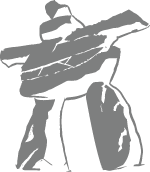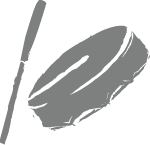USask Indigenous Community
Together, we are uplifting Indigenization to a place of prominence at the University of Saskatchewan.


Reconciliation and Indigenization
To support USask's vision to be an outstanding institution of research, learning, knowledge-keeping, reconciliation, and inclusion with and by Indigenous peoples and communities the University Plan 2025 weaves USask’s commitment to Indigenization and reconciliation throughout its many goals
USask leadership including the President and Vice-Provost, Indigenous Engagement encourages engagement and provides guidance so that the whole USask community is unified in working towards and contributing to Indigenization and Reconciliation initiatives.
In 2015, USask hosted the first national forum on “Building Reconciliation” in response to the Truth and Reconciliation Commission of Canada’s final report.
USask’s decision to observe National Day for Truth and Reconciliation in remembering and honouring residential school survivors and their families aligns with the university’s national efforts toward reconciliation.

Academic Opportunities
We continue to dedicate resources to improve student access and support, and to ensure that all Indigenous students who aspire to be at USask have that opportunity.
Along with the development of a northern strategy, the new Prince Albert Campus reaffirms the university’s commitment to Indigenous and northern education and allows for more opportunity for Indigenous students to learn from or close to the communities in which they live.
Pathway and bridging programs such as the Indigenous Student Achievement Pathways and the Indigenous Engineering Student Initiative are now provided for Indigenous students as they join the university and many of our professional programs ensure spots for Indigenous applicants.
3,400+
Self-declared Indigenous students
14%
Indigenous student enrolment. Among the highest percentage of the overall student population of any university in Canada.
11
Programs with an Indigenous focus

Teaching and Learning
USask colleges and schools are committed to incorporating Indigenous knowledges and experiences into their many degree programs.
Non-Indigenous students have experiences grounded in Indigenous world views. Beginning this year, all degree students in Arts and Science (almost half our student population) will fulfill an Indigenous learning requirement.
The Indigenous Voices Program and the Gwenna Moss Centre team provide strategic and constructive support to academic leaders, faculty, and staff who are looking to develop or enhance their Indigenization initiatives including building a curriculum that is more supportive of reconciliation.
Supported by the Office of the Vice-Provost of Indigenous Engagement, the university helps retain our talented Indigenous faculty and staff by creating retention plans and strategies, and by ensuring that the new University Standards for promotion and tenure acknowledge Indigenous scholarship. Over the past five years, 23 highly regarded Indigenous faculty have been hired, for a total of 45 working at the university.
The Gordon Oakes Red Bear Student Centre provides an intercultural gathering place that brings together the teachings, traditions and cultures of the peoples of Saskatchewan and allows for mutual learning opportunities for students and faculty.

Engagement and Cultural Connections
Culture, heritage, individuality and identity are celebrated in our USask community. USask strives to provide experiential cultural and language opportunities for all students, staff, faculty, and leadership and create systems and practices that are respectful of the diverse Indigenous cultural groups.
The Gordon Oakes Red Bear Student Centre is an intercultural gathering place. It brings together the teachings, traditions and cultures of the peoples of Saskatchewan. The staff at the centre pride themselves on creating an inclusive community on campus. The centre offers personal, social, cultural and academic support to Métis, First Nations and Inuit students through a variety of programs, services and special events throughout the year including Indigenous Graduation Celebration and the Indigenous Achievement Week.
The University of Saskatchewan’s deybwewin | taapwaywin | tapwewin policy provides a framework for the implementation of Indigenous membership/citizenship verification with documentation. The University of Saskatchewan is committed to safeguarding the cultures and integrity of Indigenous peoples, Indigenous values, and Indigenous languages within the university.

Research and Scholarly Resources
Indigenous researchers lead research projects across campus, particularly in community-based, health-related areas. USask has attracted top Indigenous researchers to work with Indigenous communities across Saskatchewan to support community-based research and healthcare initiatives.
We are home to the national CIHR Indigenous Peoples’ Health Research Institute. We are the national co-ordinating centre for the nine Network Environments for Indigenous Health Research (NEIHR) and we lead the Saskatchewan NEIHR network—the First Nations and Métis Health Research Network—to advance health research within Indigenous communities in the province.
"Indigenous Peoples: Engagement and Scholarship" is one of USask's signature areas of research. USask recognizes our province's future is linked with Indigenous peoples and is working to build a vibrant community of Indigenous scholars who deepen connections with Indigenous communities to embed Indigenous methodologies and the unity of inquiry, teaching and service as a core thesis of discovery at our university.

Partnerships with Indigenous Nations, Associations and Communities
USask embraces manacihitowin (let us respect each other), and is working to create and support collaborative and reciprocal relationships and partnerships with Indigenous peoples on- and off-campus.
Supporting our work are the first-of-a-kind agreements with the FSIN, Métis Nation-Saskatchewan and the Saskatoon Tribal Council.
USask often partners with Indigenous communities to ensure that research, scholarly and creative activities preserve, celebrate and create place and space for Indigenous knowledges, stories, languages and cultures.
USask researchers partner with Okanese First Nations community to measure climate change.

News and Stories
Loading...
We can do more. We will do more.
'It is our collective responsibility to build and shape the community and the world we want every day. Universities such as ours, benefiting from the diversity of perspectives of thousands of students, faculty, staff and alumni, can positively influence behaviour and understanding in ways no other kinds of institutions can. If we are deliberate and courageous, we can make these changes together through dialogue, education and action."
- President Peter Stoicheff

